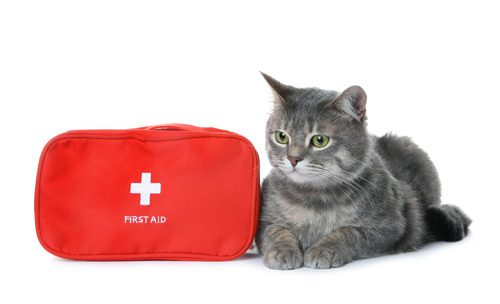Common Pet Emergencies in Plantation, FL
When a pet emergency strikes, the stress and uncertainty can be overwhelming. In Plantation, FL, where pets are a beloved part of many families, knowing the common emergencies that can affect your pets and how to respond can make a critical difference. This blog post outlines the frequent pet emergencies encountered in the area and provides essential information on recognizing these conditions. If you ever face such an emergency, remember to contact Central Broward Animal Hospital immediately at (954) 792-6223 for guidance and to prepare for your arrival.

Recognizing a Pet Emergency
Recognizing when your pet is in crisis is the first step to ensuring they receive the care they need swiftly. Signs that typically indicate a medical emergency include:
- Extreme lethargy
- Uncontrolled bleeding
- Seizures
- Difficulty breathing
- Sudden collapse
- Inability to urinate
These symptoms can be alarming, and swift action could be critical to the health and survival of your pet. Understanding what qualifies as an emergency can help you react appropriately without delay. If you observe any of the signs mentioned, it’s crucial to contact a veterinarian immediately. Waiting or attempting home remedies can further endanger your pet’s health.
Most Common Emergencies
Trauma
Accidents such as falls, vehicle impacts, or fights with other animals can lead to severe injuries. Trauma might manifest as broken bones, deep cuts, or internal injuries. All require immediate veterinary attention to address potential complications and commence pain management.
Poisoning
Exposure to household toxins, including certain plants, human medications, or toxic foods (like chocolate for dogs), is a frequent emergency. Symptoms of poisoning vary but often include vomiting, diarrhea, severe lethargy, and convulsions.
Heatstroke
In Florida’s hot climate, heatstroke is a common issue, especially during the summer months. Signs include excessive panting, drooling, reddened gums, and eventual unresponsiveness. Immediate cooling and veterinary intervention are vital to prevent serious organ damage.
Preventing Emergencies
Reducing the risk of common pet emergencies involves proactive measures to create a safe environment and manage potential hazards that could harm your pets. Here are some practical tips for pet owners in Plantation, FL, to help prevent such incidents:
Secure Your Home
Pets are curious by nature and can inadvertently get into dangerous situations. Ensuring that your home is secure can greatly reduce the likelihood of accidents.
- Remove Toxic Substances: Store all chemicals, medications, and toxic foods where pets cannot access them. Common dangerous items include cleaning supplies, rodent poisons, certain plants, and human medications.
- Safeguard Open Spaces: Ensure that open windows have secure screens and that there are no escape routes in fences or gates. This can prevent falls and escape attempts that could lead to injuries or getting lost.
Regular Veterinary Care
Routine check-ups are crucial not only for maintaining general health but also for preventing emergencies by identifying risk factors before they lead to serious conditions.
- Vaccinations and Preventive Medications: Keeping up with vaccinations and preventive treatments for parasites is vital in preventing diseases that can escalate into emergencies.
- Health Screenings: Regular health screenings can detect conditions early, such as urinary tract problems or diabetes, which, if left untreated, could develop into emergencies.
Appropriate Supervision and Training
Supervising your pets, especially in potentially risky situations, and investing in proper training can significantly decrease the likelihood of emergencies.
- Leash and Behavior Training: Always use a leash on walks to prevent accidents like running into traffic or altercations with other animals. Training your pet to respond to commands can also help avoid dangerous situations.
- Supervised Play: Monitor your pet during play, especially in new or dynamic environments. Keep toys that are safe and size-appropriate, and remove any broken or dangerous toys from play.
Prepare for Extreme Weather
Plantation, FL, experiences hot weather that can pose risks like heatstroke. Being prepared for temperature extremes is essential.
- Provide Shade and Water: Always provide plenty of fresh water and a shady spot to rest, especially when your pet is outside in the heat for any length of time.
- Avoid Hot Pavement: Be mindful of hot surfaces like asphalt, which can burn paws. Walk your pet in the early morning or later in the evening when temperatures are cooler.
When to Call the Vet
If you suspect your pet is facing an emergency, it is essential to call Central Broward Animal Hospital right away at (954) 792-6223. Explaining the symptoms over the phone can help the veterinary team prepare for your arrival, ensuring your pet receives the quickest possible attention. The sooner you act, the better the chances of a favorable outcome for your pet. Immediate veterinary care not only helps alleviate suffering but can also save lives, especially in severe cases like poisoning or trauma.
Knowing How to Recognize & Respond to Pet Emergencies
Being knowledgeable about the common pet emergencies in Plantation, FL, and understanding the appropriate responses are critical steps in safeguarding your pets. In moments of crisis, it is essential to act swiftly and decisively. Your first call should always be to your veterinarian at Central Broward Animal Hospital. Quick response not only helps in managing the situation more effectively but also enhances the chances of a successful recovery for your pet. Therefore, never delay in seeking professional help as timely intervention is often crucial in emergency situations.
